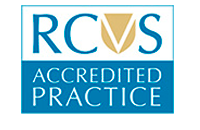Emergency contact: 01707 666399
Specialist Service in Surgical Oncology
Surgery is a vital part of care for many dogs and cats with cancer, because it is the most effective option for the management of most cancer cases. The goal of surgical oncology is to eliminate cancer cells from the body and to prevent the spread of cancer to other parts of the body. The specialist RVC service in Surgical Oncology at the QMHA provides a state-of-the-art approach to cancer therapy that is centred around multi-disciplinary patient evaluation and cutting-edge surgical treatment.
Multi-disciplinary approach
The specialist service in Surgical Oncology provides a multi-disciplinary approach to cancer treatment. This means that a team of veterinary soft tissue surgeons evaluate patients alongside medical oncologists, pathologists, and radiologists to provide multi-modality treatment planning for a wide variety of malignant and benign tumours, including:
- Anal sac tumours
- Endocrine tumours:
- Insulinomas
- Thyroid tumours
- Adrenal gland tumours
- Mammary gland tumours
- Liver tumours
- Mast cell tumours
- Oral tumours
- Osteosarcomas
- Soft tissue sarcomas
- Splenic tumours
Our team of experts works together to review and manage all referrals to the Surgical Oncology division, to ensure that comprehensive treatment plans are developed that are tailored to meet the unique needs of each individual patient. The multi-disciplinary approach is important because cancer treatment is a complex and multifaceted process that requires specialised knowledge and expertise from a variety of veterinary specialists. By working together, our team of specialists can provide a more accurate diagnosis, better treatment options, and improved outcomes for our patients.
Referrals
If you believe that your pet would benefit from an assessment through the specialist RVC service in Surgical Oncology, you can ask your primary care veterinary practice to refer your pet. Our Surgical Oncology team will work closely with your veterinarian to ensure that your pet receives the best possible care.
During your consultation with one of our Surgical Oncology surgeons, we will perform a thorough examination of your pet, which may include imaging tests such as ultrasound, or CT-scans. Based on our findings, we will develop a personalised treatment plan that is tailored to your pet.
We understand that a diagnosis of cancer can be a stressful and emotional experience for pet owners. That is why we strive to provide compassionate care and support to both our patients and their families throughout the entire treatment process.
Cancer research
At the QMHA we are proud to be at the forefront of cancer research and we have a strong commitment to advancing the field of both veterinary and human oncology. We believe that research is critical to enhance our understanding of cancer and to develop new diagnostic tests and therapies. The RVC has a robust cancer research programme, and we are involved in numerous ongoing studies, including clinical trials. During your pet’s initial consultation, you will be informed about potential clinical trials your pet could enrol.
In addition to our ongoing research efforts, we are also actively archiving blood and cancer samples as part of the RVC Cancer Biobank Programme. The RVC Cancer Biobank's key goal is to improve companion animal and human health, by promoting translational research (bench to bedside) that will ultimately result in precision medicine advancements with more effective, better targeted, and less toxic therapies. The power of the RVC Cancer Biobank is the linking of cancer samples with patient information, including treatment, outcomes, and linking basic science research back to the samples. Currently, the RVC Cancer Biobank holds paired blood samples and frozen cancer tissue samples of 70 different cancer types, and we continue to expand our biobank, allowing industry partners and scientists at academic institutions from around the world to undertake investigations using these samples to improve treatment and clinical outcomes of pets suffering from cancer in the future.
To discuss the suitability of specific cases veterinary colleagues can contact the Surgical Oncology team by phone on 01707 666365 or by email at qmhreception@rvc.ac.uk

